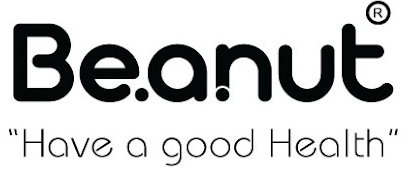As your trusted source for all things nutty, we are here to help you navigate the sometimes overwhelming world of food labels. Whether you're choosing peanut butter or other peanut products, understanding food labels is crucial to making informed, health-conscious choices. Today, we will help you look into the essentials of decoding food labels to ensure you're picking the highest quality
1. The Ingredient List: Simplicity is Key
When examining the ingredient list of peanut butter, simplicity should be your guiding principle. Quality peanut butter typically contains just one or two ingredients: peanuts and possibly salt. Beanut prides itself on offering products with no added sugars, oils, or preservatives, keeping your health in focus. Avoid products with lengthy ingredient lists that include hydrogenated oils and artificial additives, which can detract from the nutritional value.
2. Nutritional Content: Look Beyond the Basics
Pay attention to the nutritional information provided on the label. Key metrics include:
- Calories: Standard peanut butter servings contain around 190 calories per two tablespoons. Be mindful of your overall caloric intake when incorporating peanut butter into your diet.
- Protein: Peanut butter is an excellent source of plant-based protein. Aim for products that offer around 7 grams of protein per serving, indicative of minimal processing and high-quality ingredients.
- Fats: Look for unsaturated fats, which are heart-healthy. Avoid products with trans fats, often listed as hydrogenated oils, as these can be detrimental to your cholesterol levels.
3. Added Sugars and Sodium: Moderation Matters
Added sugars and sodium can significantly impact the health benefits of peanut butter. High-quality options like Beanut's natural line have either no added sugar or a minimal amount, catering to those seeking a healthier alternative. On the flip side, some of the very well known brands in the Indian market are noted for their higher sugar and salt content, appealing to taste but not necessarily to health
4. Nutritional Enhancements: Extra Benefits
Some peanut butter brands include added nutrients such as omega-3 fatty acids or added fiber to boost the product's health benefits. While these enhancements can be beneficial, they are not essential for a quality product. Beanut focuses on delivering pure, unadulterated peanut goodness, ensuring you get the most natural experience possible.
5. Organic and Natural Labels: Verify Authenticity
Be wary of labels that claim products are "natural" or "organic." These terms can sometimes be misleading. Look for certifications, such as USDA Organic, to ensure that the product lives up to its label. Beanut is committed to transparency and quality, ensuring that all claims are backed by credible certifications.
Making the Smart Choice
Decoding food labels isn't just about understanding what's in your peanut butter—it's about making choices that align with your health goals and dietary preferences. Beanut is dedicated to providing you with straightforward, high-quality products that you can trust. The next time you shop, remember these tips to ensure you're picking the best peanut products on the shelf.
Beanut's Commitment to Quality
Having discussed the essential factors to consider when decoding food labels, let's examine how Beanut stands up to these standards.
Simplicity in Ingredients:
Beanut's ingredient list epitomizes simplicity, containing only roasted peanuts (71%), sugar, cocoa powder, dark choco chips, edible vegetable oil (hydrogenated soybean oil), emulsifier (E471), and salt. While the product includes a few additional ingredients for flavor and texture, it remains free from artificial additives and preservatives. This adherence to minimal and natural components ensures that you are consuming a product focused on your health.
Nutritional Content:
- Calories: With 192 kcal per serving (2 tablespoons), Beanut aligns well with the standard caloric value of high-quality peanut butter. This makes it easy to manage within your daily caloric intake.
- Protein: Each serving of Beanut provides 6.7 grams of protein, slightly below the ideal 7 grams but still a good source of plant-based protein. This indicates a product that maintains its nutritional integrity without excessive processing.
- Fats: Beanut contains 15.4 grams of total fat per serving, with 3.2 grams of saturated fatty acids and zero trans fats. The absence of trans fats, in particular, highlights Beanut's commitment to providing heart-healthy fats.
Moderation in Added Sugars and Sodium:
Beanut's natural line is mindful of added sugars and sodium per serving. Peanut’s quantities are moderate, making Beanut a healthier choice compared to brands laden with excessive sugars and salts. This balance ensures that while the product remains flavorful, it does not compromise on health.
Nutritional Enhancements:
While Beanut focuses on delivering pure, natural peanut butter without additional nutrients like omega-3 fatty acids or added fiber, it ensures that the product's primary components are of the highest quality. This dedication to simplicity over supplementation underscores Beanut's philosophy of providing unadulterated peanut goodness.
Authenticity in Labels:
Beanut is committed to transparency, ensuring all label claims are accurate and backed by credible certifications. While the product is not explicitly labeled as "organic" or "natural," its straightforward ingredient list and adherence to quality reflect its authenticity and dedication to consumer trust.
By adhering to these principles, Beanut ensures that its products are not only delicious but also align with the health-conscious choices of its consumers. The next time you pick up a jar of Beanut, you can be confident that you're making a smart, informed choice.
Thank you for choosing Beanut—a brand committed to bringing you the purest and most delicious peanut butter.
Stay nutty and healthy!

